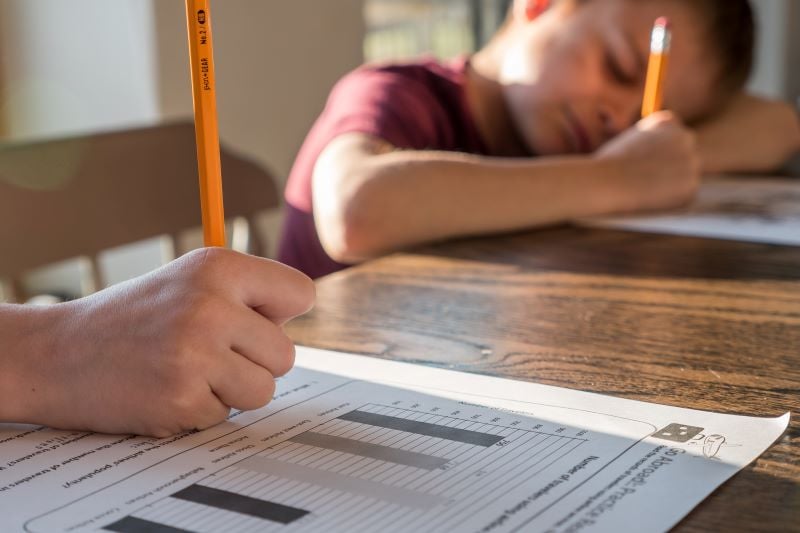Screens are inescapable in this day and age. It is likely that your child has 3 or more screen devices they interact with on a daily basis, such as smartphones, televisions, computers, and tablets. Your child is also likely dependent on a screened device for their education, especially now during the COVID-19 pandemic where they may be going back to remote learning at any moment.
This dependence on technology is not an inherently negative thing, especially with the Internet enabling us to improve our work and lives. However, the amount of time your child spends with screens can be detrimental to their mental health and growth.
 Is Screen Time Harmful?
Is Screen Time Harmful?
A study from the National Institutes of Health (NIH) showed that children who spent more than two hours a day on screen-time activities scored lower on language and thinking tests, and some children with more than seven hours a day of screen time experienced thinning of the brain’s cortex, the area of the brain related to critical thinking and reasoning.
Too much screen time can even disrupt your child’s development at a young age. For children younger than 3, excessive screen time may inhibit a child’s ability to observe and experience the typical everyday activities they need to engage with in order to learn about the world. Children who are 6 months to 2 years old can watch TV and be engaged with it, but will not be able to learn from it or absorb any information. So even if you have your toddler watching nature documentaries and educational programming, they aren’t actively learning until they’re at least 2.
How to Restrict Screen Time
The best way to avoid negative effects is to restrict the amount of time your child spends with screens. Some time on computers is unavoidable since your child probably uses the Internet and word processing programs for basic parts of their homework, even if their school is fully in-person. The restriction should be less on their school or homework time and more on their leisure time.
The American Academy of Pediatrics recommends limiting screen use for preschool children to just one hour a day of high-quality programming (such as programs on PBS or educational documentaries).
For children up to age 12, the emphasis is on restricting the use of social media such as Facebook or Instagram. This is not only to protect your child’s mental and social development, but to also help protect them against predatory influences online. This is also the age where it is important to teach your child how to be safe online, especially when posting photos to social media or talking with strangers.
For children older than 12, it’s important for you to structure screen-free time for your child individually and for your family as a group. Having this “unplugged” time not only allows you to bond as a family, but helps to allow your child’s brain to recover from the screen-based stimulation. This is especially important near bedtimes, because screens are famous for contributing to sleeplessness and even insomnia in children and adults.
Your child may truly love to spend time on their screen devices, playing games and interacting with social media, but it is important to enforce these limits. Your child can and will spend too much time on screens, and it’s up to you to protect them from indulging in them too much.
Source: https://healthmatters.nyp.org/what-does-too-much-screen-time-do-to-childrens-brains/





